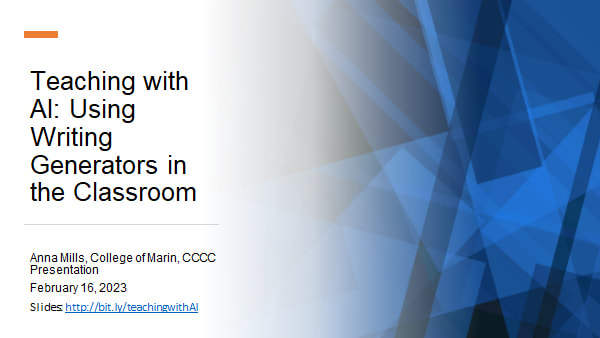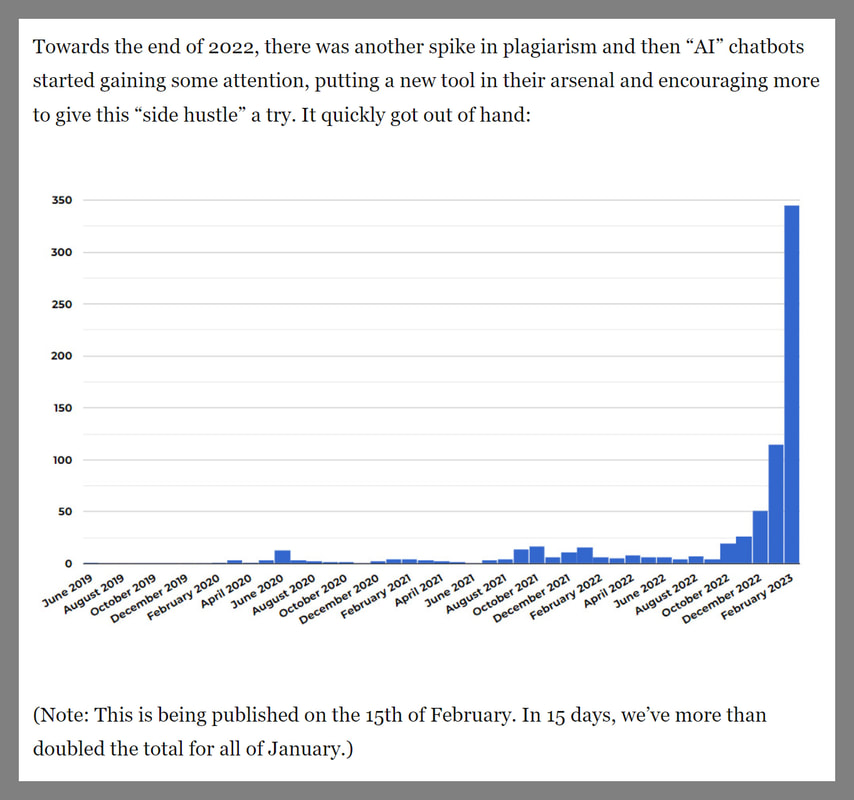(Presentation slides) Teaching with AI: Using Writing Generators in the Classroom (2023, Anna Mills)
Anna Mills, College of Marin, CCCC Presentation, February 16, 2023
https://docs.google.com/presentation/d/1I7xmR6keQZb4wXj-UwLH00M0xGK-nrqq/edit#slide=id.p2
#AI #ArtificialIntelligence #ChatGPT #Chatbot #DALLE2 #AcademicIntegrity #TechnologyInTeaching #TippingPoint #DisruptiveInnovation #HigherEducation #AppliedLearning #WebGPT #OpenAI #DALLE2 #Bing #Microsoft #MicrosoftOffice #MicrosoftWord #PowerPoint #Google #Bard #GoogleBard #BaiduErnie


 RSS Feed
RSS Feed